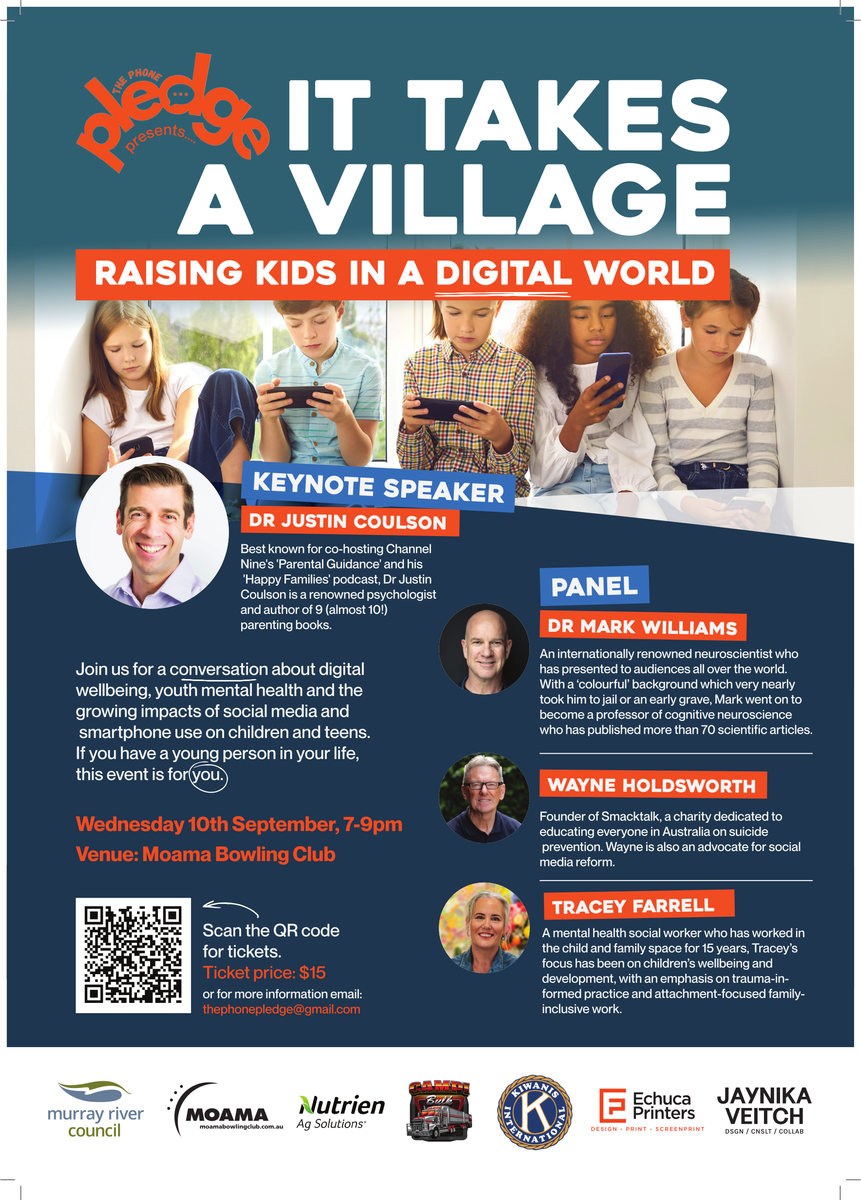Student Wellbeing

Welcome to the half way mark of Term 3!
Cyber Safety in our School Community
The safety and wellbeing of our students extends beyond the classroom and into the digital world as well. As we continue to embrace technology in education, it’s important for students, staff and families to stay informed and vigilant about cyber safety.
With increasing access to devices, social media, and online platforms, young people are more connected than ever. While this presents many opportunities for learning and connection, it also comes with risks, including: cyberbullying, exposure to inappropriate content and online scams.
We can help our children safely navigate the online world by taking some basic steps to reduce the risks.
Our support and guidance can give our children the knowledge to make sound decisions online and the confidence to ask for help when they need it.
The below key strategies are taken from Online safety basics:
Be engaged, open and supportive
- Get involved with your child’s online activities as a family. Play games together. Talk about favourite apps, games or websites.
- Keep lines of communication open. Ask about their online experiences, who they are talking to and whether they are having any issues.
- Reassure your child they can always come to you, no matter what. Your child may not communicate openly about things that worry them online if they fear being in trouble if they tell you. Let them know you will not cut off internet or device access if they tell you they’re feeling uncomfortable or unsafe online.
- If you notice a change in your child’s behaviour or mood, talk with them about it. If you are concerned, consider seeking professional help - from your GP, a psychologist or school counsellor.
Set some rules
- Set rules for devices and online access, with consequences for breaking them. As they grow in online skills and maturity you can review your rules together.
- Get your child’s input - this will help them understand risks.
- Model behaviour that you would like to see. Children will be more likely to follow rules if they see you doing the same.
- Consider creating a family tech agreement (sometimes called a family media plan or family online safety agreement). This is a set of rules about how devices are used in your home as well as what acceptable online behaviour looks like. eSafety has created downloadable templates for families with children under 5 or those with kids aged 5 to 8 years. For families with older children, The Family Online Safety Contract from ThinkUKnow Australia External link is a good starting point.
Use safety features and settings
- Get to know the devices you and your children use and set them up for privacy and online safety. Take advantage of parental controls to monitor and control screen time and access to content, based on your child’s age and experience. See our guide to parental controls.
- Choose apps and games carefully, and visit the App Store or Google Play for age ratings and consumer advice.
- Refer to our advice about screen time and online gaming if these are of concern.
- The eSafety Guide provides valuable information about the latest games, apps and social media, including how to protect your personal information and report harmful content.
Let’s work together to create a safe and supportive digital environment for every student. If you have any questions or concerns about cyber safety, please don’t hesitate to contact the College.
For those interested in learning more about raising kids in a digital world I highly recommend attending this session.
The Imperfects Podcast
Dis Works – A Game-Changing Study of The Resilience Project
Well, well, well, it’s time to prove things.
Today we’re jumping in your ears for a public service announcement: The Resilience Project (TRP) is officially backed by some rock-hard, super-sciencey evidence.
Founded by our very own Hugh (you know, from the podcast), TRP delivers emotionally engaging programs to over 1000 schools across Australia, as well as workplaces and sporting clubs.
This longitudinal, independent study conducted by Roshini Balasooriya Lekamge is peer reviewed , published in The British Journal of Psychiatry, and most importantly, highlights a staggering decrease in depression and anxiety for kids who are engaged with TRP programs and content.
Listen here -The Imperfects podcast.
Shari Gotch
College Leader - Student Wellbeing

